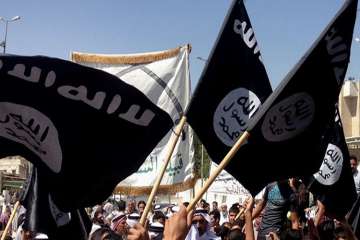Around 80 women suspected to be members of an all-female Islamic State terror cell are believed to be on their way back to the UK, many with children, after being detained in Syria following the collapse of the dreaded terror group.
Two sisters from east London, a white convert daughter of a former British Army paratrooper and an IT graduate whose mother works in the state-funded National Health Service (NHS) are part of the alleged cell, which is linked to some of the world's most infamous terrorists, according to an investigation by The Sunday Times.
"The vast majority of those returning to Britain from Syria are women and children," an unnamed UK security service official was quoted as saying.
"The more concerning cases — particularly the men — have not been returning. But we will speak to everyone… because they may have been involved in terrorist activity," the official said.
One of the women has reportedly told relatives in Britain that as many as 80 British women and children expect to return imminently, while others will be home by the end of the year.
She said she recently had her British passport handed back and that British officials had issued her child with new travel documents.
She also expects to be DNA-tested to prove she is the child's mother.
The disclosure comes as Britain and other European governments face growing pressure to repatriate the jihadi brides from detention camps in northern Syria controlled by Kurdish forces.
The joint investigation by The Sunday Times and Sabado, a Portuguese news magazine, has identified up to six women from Britain who married into a notorious cell of fighters from east London linked to Mohammed Emwazi, known as Jihadi John.
They and other female returnees face arrest on their arrival, as well as possibly having their children removed.
But UK government officials concede that successful prosecutions could prove problematic because of the difficulty in "collecting evidence in theatre".
At least 900 British Muslims, including up to 150 women, are believed to have travelled to join jihadist groups in Syria and Iraq.
Officials say about 360 Britons remain in the region and are of "national security concern"
Latest World News
